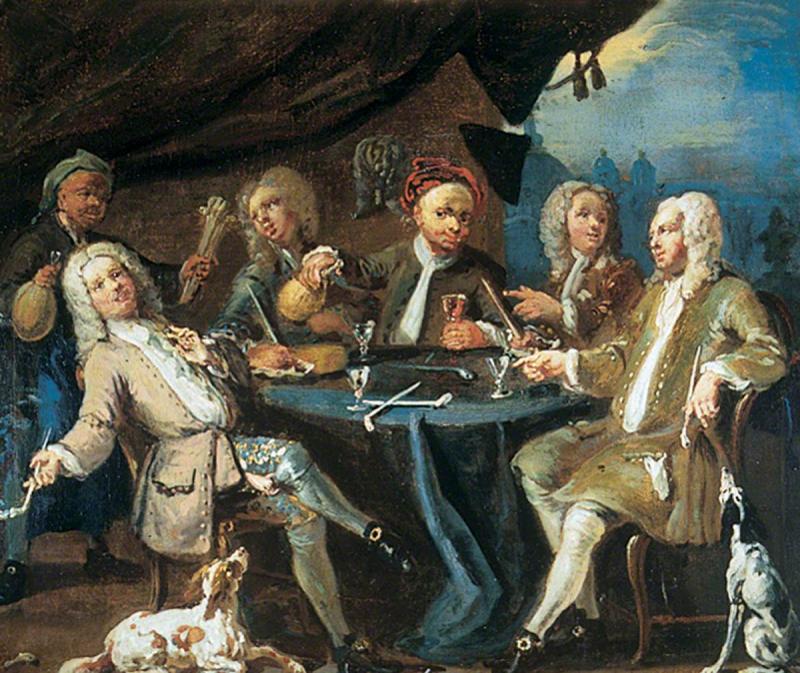Quote
"The bravest hero, and the brightest dame,
From Belgia's happy clime Britannia drew;
One pregnant cloud we find does often frame
The awful thunder and the gentle dew."
Links to the Encyclopedia:
LADY CARLISLE.
CARLISLE'S name can every Muse inspire;
To Carlisle fill the glass, and tune the lyre.
With his lov'd bays the god of day shall crown
A wit and lustre equal to his own.
THE SAME.
At once the Sun and Carlisle took their way,
To warm the frozen north, and kindle day;
The flowers to both their glad creation ow'd,
Their virtues he, their beauties she bestow'd.
LADY ESSEX.
The bravest hero, and the brightest dame,
From Belgia's happy clime Britannia drew;
One pregnant cloud we find does often frame
The awful thunder and the gentle dew.
THE SAME.
To Essex fill the sprightly wine;
The health's engaging and divine.
Let purest odours scent the air,
And wreaths of roses bind our hair :
In her chaste lips these blushing lie,
And those her gentle sighs supply.
LADÝ HYDE.
The god of wine grows jealous of his art,
He only fires the head, but Hyde the heart.
The queen of love looks on, and smiles to see
A nymph more mighty than a deity.
ON LADY HYDE IN CHILD-BED.
Hyde, though in agonies, her graces keeps,
A thousand charms the nymph's complaints adorn;
In tears of dew so mild Aurora weeps,
But her bright offspring is the cheerful Morn.
LADY WHARTON.
When Jove to Ida did the gods invite,
And in immortal toasting pass'd the night,
With more than nectar be the banquet bless'd,
For Wharton was the Venus of the feast.
Sources
Taken from Wentworth Dillon, The Works of the Most Celebrated Minor Poets. Namely, Wentworth, Earl of Roscommon; Charles, Earl of Dorset; Charles, Earl of Halifax; Sir Samuel Garth; George Stepney, Esq; William Walsh, Esq; Thomas Tickell, Esq. Never before collected and publish'd together. In two volumes. Printed for F. Cogan, at the Middle Temple Gate (London), 1749, vol. 1, p. 234-235. Full text by ECCO.
